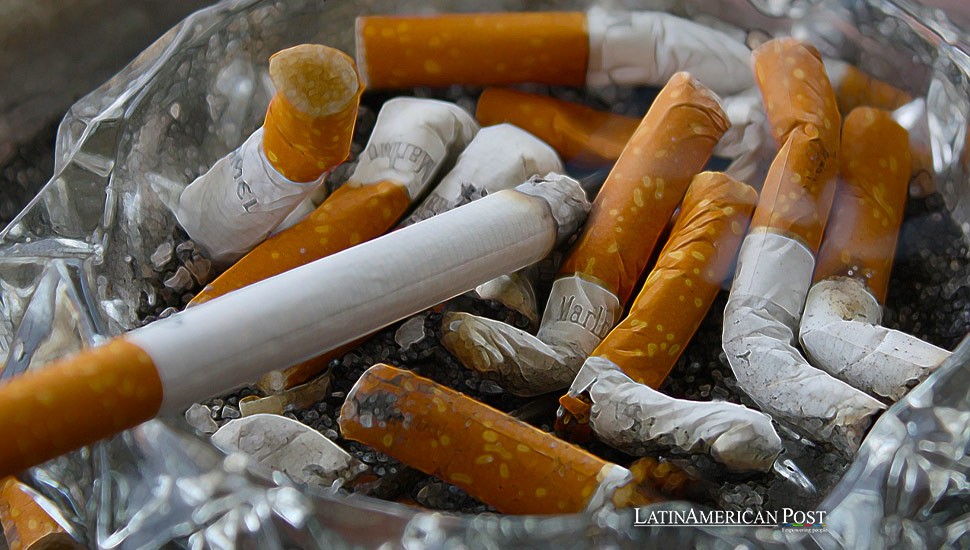Brazil Plans to Raise Cigarette Prices to Offset Tax Revenue Losses

In a strategic move to mitigate revenue losses from recent tax exemptions, Brazil’s Finance Ministry is planning to raise the minimum price of cigarettes. This initiative aims to compensate for a significant budget shortfall while addressing public health concerns.
Brazil’s Finance Ministry is considering increasing the minimum price of cigarettes in response to a substantial revenue loss due to recent tax exemptions. This measure is part of a broader strategy to balance the budget and sustain public finances. The proposed hike comes as the government seeks to offset nearly 26 billion reais ($5.03 billion) in lost revenue from payroll tax exemptions approved by Congress in December.
Brazil’s economy has been facing significant challenges, exacerbated by the COVID-19 pandemic. The government implemented various tax exemptions to stimulate economic recovery and support businesses, including payroll tax cuts for specific sectors and small municipalities. While these measures were necessary to alleviate financial pressures, they resulted in substantial revenue losses for the government.
The Finance Ministry, led by Fernando Haddad, is preparing a series of revenue-increasing measures to address this shortfall. The most notable is the plan to raise the minimum price of cigarettes, which currently stands at five reais for a pack of 20. This increase will boost federal tax revenue and help bridge the budget gap.
The Impact of Raising Cigarette Prices
Increasing the minimum price of cigarettes is a fiscal strategy and a public health measure. Higher cigarette prices are generally associated with reduced smoking rates, as the increased cost can deter consumers, particularly young people and low-income individuals, from purchasing tobacco products. This aligns with global public health objectives to reduce smoking prevalence and associated health risks.
According to local reports, the proposed hike could generate between 3 and 4 billion reais in additional revenue. However, this will only partially offset the total revenue loss, necessitating exploring other revenue sources to fully compensate for the tax exemptions.
Historical Context: Tobacco Taxation in Brazil
Brazil has a history of using tobacco taxation as a tool for both revenue generation and public health. In the past, the government has implemented various tax increases on tobacco products to curb smoking rates and fund healthcare initiatives. These measures have contributed to declining smoking prevalence over the years, positioning Brazil as a Latin American tobacco control leader.
The relationship between tobacco taxation and public health policy in Brazil can be traced back to the 1990s when the government began to implement stricter regulations on tobacco advertising and smoking in public places. These efforts were complemented by significant tax hikes on cigarettes, which helped reduce smoking rates and generated substantial revenue for public health programs.
Current Challenges and Considerations
Despite the potential benefits of raising cigarette prices, the government must navigate several challenges. One primary concern is the illicit tobacco trade, which could undermine the effectiveness of the price increase. Higher prices on legal tobacco products may drive consumers towards cheaper, illicit alternatives, reducing the expected revenue gains and perpetuating public health risks.
To address this, the government must strengthen enforcement measures to combat the illicit tobacco market. This includes increasing border controls, enhancing surveillance, and implementing stricter smuggling and illegal sales penalties. Collaborating with international organizations and neighboring countries can also help tackle cross-border tobacco smuggling.
Another consideration is the impact on small businesses and low-income consumers. While the primary objective is to reduce smoking rates and increase revenue, the government must ensure that the policy does not disproportionately affect vulnerable populations. Implementing complementary measures, such as smoking cessation programs and public awareness campaigns, can help mitigate these effects.
Looking Ahead: Policy Implications and Future Steps
The proposed increase in cigarette prices is part of a broader effort by the Brazilian government to stabilize public finances and promote public health. If approved, the measure will help offset the revenue losses from recent tax exemptions and contribute to the country’s long-term health goals.
In the coming weeks, the Finance Ministry will finalize the proposal’s details and decide whether to present it to Congress or issue it via an executive order. The outcome will depend on political negotiations and lawmakers’ willingness to support the measure amidst various economic and social pressures.
A Balanced Approach to Fiscal and Public Health Goals
Brazil’s plan to raise the minimum price of cigarettes represents a balanced approach to addressing fiscal challenges and promoting public health. By leveraging tobacco taxation, the government aims to generate much-needed revenue while continuing its efforts to reduce smoking rates and associated health risks.
As the country navigates this complex policy landscape, it is essential to consider the measure’s historical context, potential challenges, and broader implications. Through careful planning and effective implementation, Brazil can achieve its dual objectives of fiscal stability and improved public health outcomes.
Also read: Brazilian Court Denies X’s Request to Exempt Subsidiary from Legal Responsibility
This policy could serve as a model for other countries facing similar challenges by addressing both economic and public health goals. Through strategic taxation and robust enforcement, Brazil can continue to lead in tobacco control and fiscal management in Latin America.




